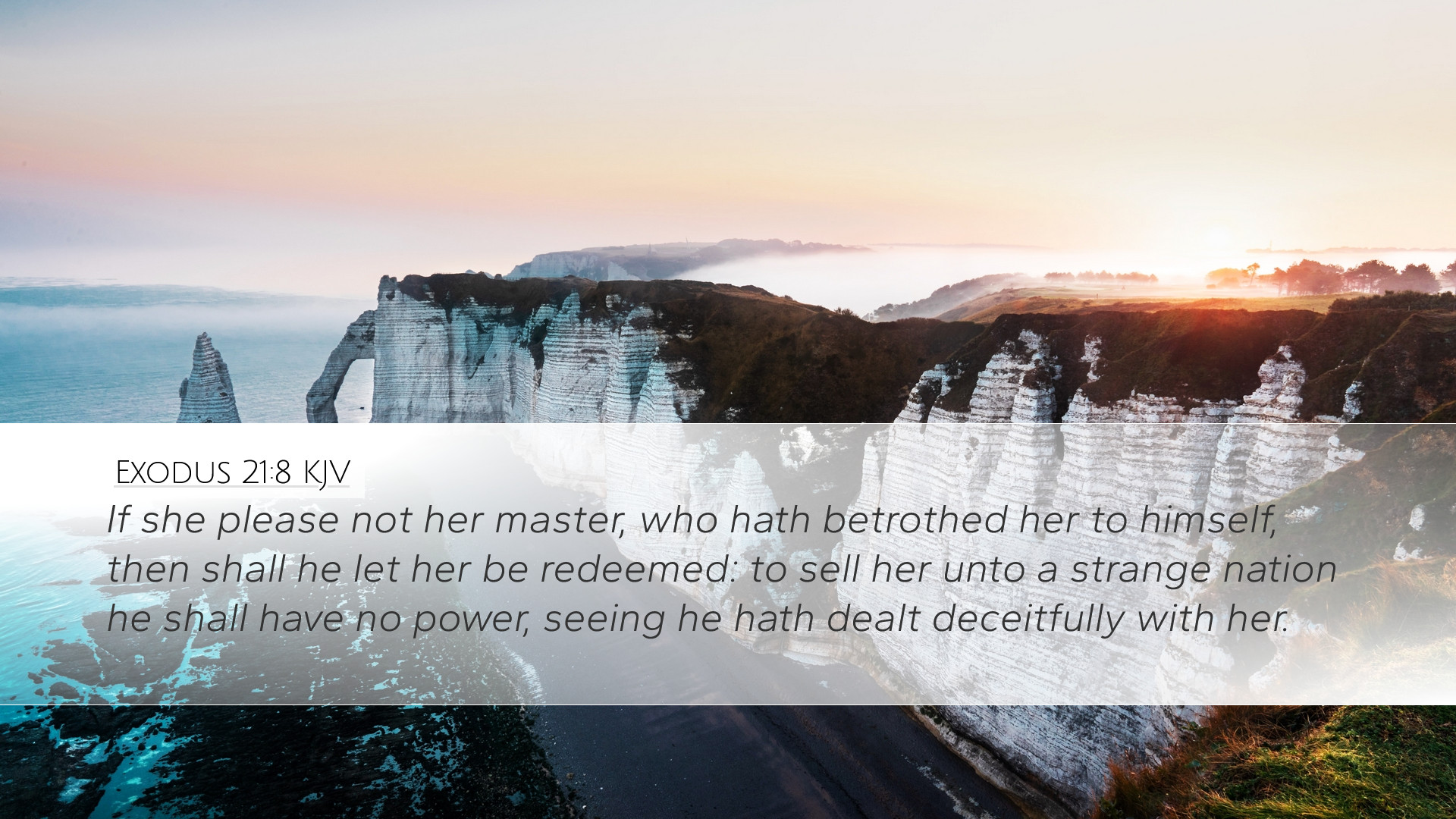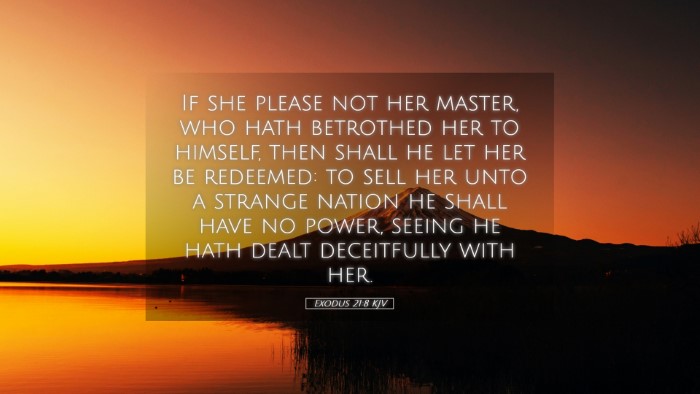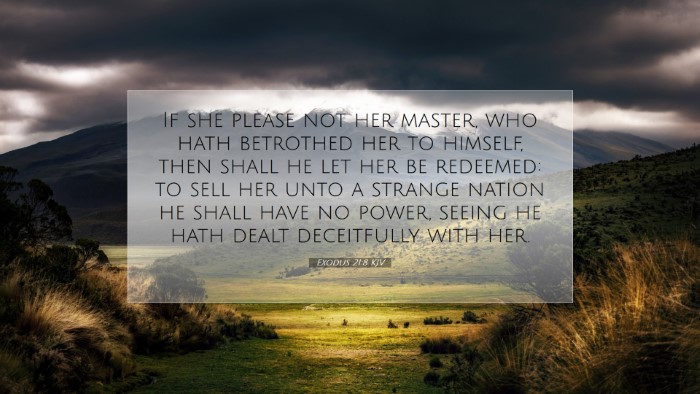Commentary on Exodus 21:8
Exodus 21:8 states: "If she please not her master, who hath betrothed her to himself, then shall he let her be redeemed: to sell her unto a strange nation he shall have no power, seeing he hath dealt deceitfully with her."
Introduction
This verse is situated within the broader context of the laws regarding servitude and the treatment of female servants in Israelite society. It reveals aspects of social justice, gender roles, and the inherent dignity of individuals in a system that allowed for servitude. The legal stipulations outlined here reflect the moral and ethical concerns of the Israelites, guided by the covenantal relationship they had with God.
Contextual Background
The Mosaic Law provided regulations not only for the Israelites but also laid down the treatment principles for servants and laborers. The cultural backdrop of the Ancient Near East had different paradigms for servitude, often one of exploitation. However, Yahweh's law aimed to elevate the status of individuals within these relationships.
Exegesis of Key Phrases
-
"If she please not her master": This phrase underscores the relational dynamics between the servant and the master. The text suggests that the master's disposition towards the servant should reflect mutual respect. The failure of the master to honor this expectation reveals a moral deficiency.
-
"he shall let her be redeemed": The provision for redemption signifies the possibility of hope and liberation for the servant. This is a departure from absolute ownership, pointing to the inherent value of the individual and an ethical obligation of the master towards her well-being.
-
"to sell her unto a strange nation he shall have no power": This provision serves as a safeguard against human trafficking and exploitation. It highlights God's intention for the protection and dignity of servant women, preventing them from being commodified or exploited in foreign lands.
Theological Implications
The verse evokes several significant theological themes that resonate throughout Scripture:
-
Divine Justice: The requirement for a master to allow redemption reflects God’s justice, underlining His care for the marginalized and vulnerable in society. It resonates with the themes of liberation found throughout the Bible, particularly in the exodus narrative.
-
Human Dignity: The principle of allowing redemption emphasizes that every individual possesses intrinsic value. It sets a precedent that would later align with the New Testament teachings about the worth of every soul.
-
Sacred Relationships: The text mentions betrothal, introducing the idea that human relationships should be built on consent and care rather than coercion. This perspective anticipates the fullness of relational commitments found in Christ’s teachings.
Insights from Prominent Commentators
Matthew Henry
Henry emphasizes the necessity of justice and honesty in the master-servant relationship. He interprets this verse as not only a legalistic requirement but also as an ethical guide that encourages masters to act with grace and kindness. The failure to do so truly represents deceitfulness in the sight of God.
Albert Barnes
Barnes points to the protective nature of this law, highlighting that it acts as both a safeguard for the servant and an admonition for the master. The idea of redemption presents an opportunity for restoration, reflecting God’s redemptive plan for humanity.
Adam Clarke
Clarke delves into the cultural and historical implications of servitude, asserting that this law demonstrated a progressive stance at the time against the prevailing norms of other nations. He notes how this provision sets a standard for humane treatment of servants, and outlines God’s ultimate concern for all individuals, showing that He does not condone exploitation.
Conclusion
Exodus 21:8 serves as a poignant reminder of God’s heart for justice and mercy. The insights gleaned from various commentaries paint a picture of a God who not only legislates fairness for the marginalized but also encourages integrity in human relationships. As we reflect on this passage, it calls for a deeper commitment to uphold the dignity of every person and to act with ethical sensitivity in our own relationships, echoing the foundational principles embedded in the biblical narrative.


